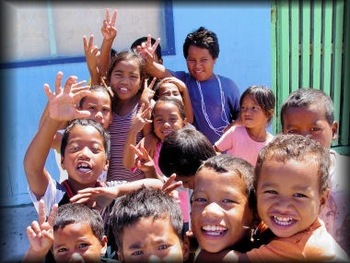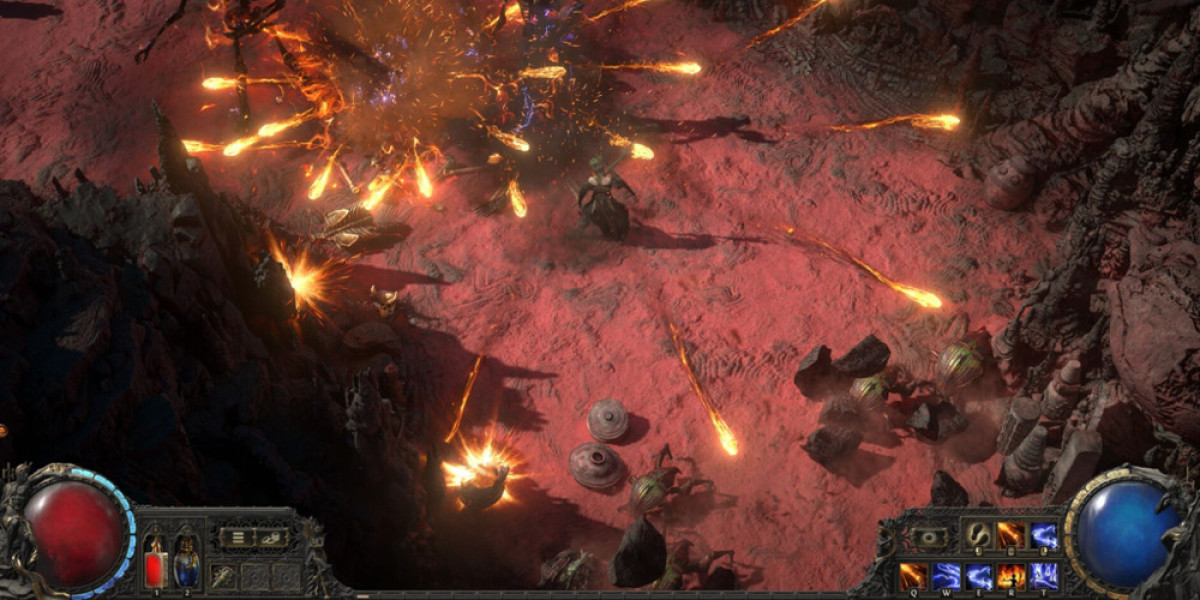RMI Education and Skills Strengthening Project
The Government of the Republic of Marshall Islands has gotten funding from the World Bank for the Education and Skills Strengthening Project (ESSP) expense. It plans to apply part of the profits for seeking advice from services.
The consulting services ("the Services") will help the Project Manager and the RMI National Training Council in implementing the World Bank-funded job successfully.
The task will focus on supporting the Project Implementation Unit (PIU) in producing a framework for Recognition of Prior Learning (RPL) for TVET, aimed at helping the College of the Marshall Islands and the RMI National Training Council assess and boost the abilities of workers through accredited college certification.
The detailed Terms of Reference (TOR) for the project are shown in the attached Terms of Reference (ToR).
The National Training Council now invites eligible individuals ("Consultants") to indicate their interest in supplying the Services. Intrigued Consultants ought to provide info demonstrating that they have actually the needed certifications and pertinent experience to carry out the Services (attach a Cover Letter of no greater than four (4) pages resolving the obligatory experience and credentials requirements curriculum vitae with a description of experience in comparable assignments, comparable conditions, and so on). Firms' staff might reveal interest through the using firm for the task. In such a circumstance, only the experience and credentials of people will be thought about in the selection procedure. The criteria for choosing the Consultant are: A.
Mandatory Qualifications and Experience Master's degree in education, training
, management, or an associated field. Minimum of 5-10 years of experience working in TVET System. Curriculum Design and Systems.
Possess 2-5 years' experience creating and
executing RPL. structures, policies, and procedures. A sample of previous work will be required as proof of previous experience. Exceptional communication, training, and assistance
skills. Experience with dealing with varied stakeholders, including federal government. companies, TVET organizations, companies, and learners in the Pacific. B. Desired Qualifications and Experience Capability to deal sensitively in a multicultural
environment and construct efficient team relationships with customers and relevant stakeholders. The attention of interested Consultants (including companies )is drawn to paragraphs 3.14, 3.16 and 3.17 of the World Bank's"
Procurement Regulations for IPF Borrowers "July 2016 revised November 2020" Procurement Regulations ", setting forth the World Bank's policy on conflict of interest. Additional details can be obtained at the address listed below throughout workplace hours, 0900 to 1700 local time. Expressions of interest need to be
delivered in a written type to the address below (in person or by email )by 5:00 pm, 23rd December 2024.
The subject line should state:"National Training Council Strategic Plan Consultant -full name of the candidate". Julius Lucky Director National Training Council!.?.!ntcdr@ntcinfo.org:Phone: 692 625-4521 Empowering Community Champions for Sustainable Development in rmi national training council Gender Equality, Climate Resilience and Water Safety Training Majuro,
Republic of the Marshall Islands: The fourth
Women and Youth Training for
Gender Equality, Climate Change, Disaster Risk Reduction and Water Safety Management has recently taken place at the University of the South Pacific's campus in Majuro, the Republic of the Marshall Islands(RMI ). This important training was organized by the United Nations Development Programme( UNDP )Pacific Office through the Addressing Climate Vulnerability in the Water Sector(ACWA) project. The week-long capacity-building training intended to empower ladies and youth with the understanding and practices required for climate-resilient water safety management in the
Republic of the Marshall Islands(rmi national training council ). This training reinforces a commitment to enhancing RMI's water security and neighborhood durability against climate change effects, especially women
and youth, ensuring that no one is left behind. The training invited individuals from all 24 atolls and included resource speakers from federal government agencies, non-governmental companies, and international advancement partners from the RMI Environmental Protection Authority, Climate Change Directorate, Office of the Chief Secretary, Ministry of Culture and Internal Affairs, National Disaster Management Office, Women United Together Marshall Islands, RMI Human Trafficking Task Force, Waan Aelõñ in Majel, Jo-Jikum, and the International Organization for Migration. In her opening remarks, Secretary for the Ministry of Culture and Internal Affairs, Brenda Alik, underscored the significance of cumulative action in constructing a climate-resilient nation."It is our obligation to come together and work together. As we deal with the obstacles positioned by environment modification, comprehending its effect on our water resources is vital for enhancing the well-being of communities throughout the Marshall Islands,"she said.
RMI Environmental Protection Authority General Manager Moriana Philip highlighted in her speech the vital role of females and youth in attending to climate-related obstacles."This workshop joins us from different communities to address the pressing problems we face today, including climate-related challenges, particularly on our water resources."We wish to emphasize the important function of ladies and youth in this project as your involvement contributes to its success and beyond, "she stated.
The first day of the workshop covered vital issues related to gender equality, human rights, and public health within the Marshall Islands. It included conversations on gender equality and mainstreaming, concentrating on the effects of climate modification on water security and the disproportionate effects on vulnerable groups. The value of incorporating gender equality and social inclusion into all job elements was also gone over. Human rights and human trafficking were tackled, worrying the need for comprehensive defense of vulnerable populations
throughout emergencies. Furthermore, the workshop attended to gender-based violence, highlighting the different types that can occur in disaster situations, such as domestic violence and sexual browbeating. The agenda concluded with a concentrate on sanitation and hygiene and their important function in health, incomes, school presence, self-respect, and structure resistant communities. ACWA Project Manager Koji Kumamaru expressed his thankfulness to all individuals
, highlighting the significance of their contributions to their neighborhoods."Women and youth are crucial to the success of the ACWA project. More significantly, you are the champs and future leaders who will go back to your neighborhoods to empower others,"he said. Throughout the workshop, participants went to Rongrong Island and analyzed the 15,000-gallon Flatpack Modular water tank installed at the Rongrong High School Boys Dormitory as part of the ACWA job. The setup is a crucial part of the job, complemented by assistance from Australia
's Department of Foreign Affairs and Trade. The check out acted as an important firsthand experience of the favorable impact of the ACWA project on the community and its
water resources. Marie Naisher from Jabat Island revealed her thankfulness for the chance to sign up with the workshop and explained her desire to be part of the task when it reaches Jabat.
"This was my very first time taking part in such training, and I discovered a lot from the visitor speakers, group activities, and the site visit. I now comprehend the importance of clean water and how to sterilize it. I'm ecstatic about the ACWA job concerning Jabat and all set to help when it gets here,"she said. Don Kobney, an ACWA website organizer from Santo, Kwajalein, likewise shared his enjoyment."The workshop and site visit improved my confidence and understanding of the water tank setup.
Seeing the 15,000-gallon flatpack modular water tank firsthand provided me a clear understanding of the system, and I'm looking forward to sharing this understanding with my community, "he said. By the workshop's end, individuals were much better geared up to understand climate modification and its local effects, drive adjustment and mitigation efforts, especially in water safety, and utilize brand-new resources to impact their neighborhoods favorably. ACWA is made possible thanks to the assistance of the Green Climate
Fund, with the project co-financed by the Government of the Republic of the Marshall Islands
. The Marshall Islands: Skills Training and Vocational Education Project Examines the efficiency of the project and highlights lessons. Offers inputs to two more comprehensive evaluations- the regional evaluation of ADB assistance for the Pacific and the unique assessment study on Millennium Development Goals. The low instructional attainment and lack of Marshallese skilled workers were mainly due to the low quality of standard education, absence of access to education in the external islands, and weaknesses in abilities training and the trade and technical education system.
These supported an economy marked by high unemployment because of constrained economic sector growth and federal government downsizing. Joblessness was specifically high amongst the youth and women in the outer islands. Suitable regional competent workers for existing task vacancies
were unavailable, thus the importation of appropriately proficient foreign workers. Thus, there was an inequality in between offered tasks and skills of the Marshallese labour force. These conditions offered the effort for the Government
of the Marshall Islands to prioritize technical and trade education training reforms. In 2000, ADB approved a loan for $9.1 million to enhance abilities training to offer well-trained employees required for sustained economic and social advancement. This was to be attained through an integrated nationwide skills training system. The project included four parts: advancement of a profession awareness program, abilities training improvement, enhanced abilities training chances for ladies and youth, and institutional conditioning. The expected outcome was increased income-generating chances and work for students, particularly ladies and youth in the outer islands. Overall, the task was rated unsuccessful. Minimal development was achieved in making the project responsive to the requirements of its recipients and private-sector companies. The enduring weak point of bad numeracy and literacy proficiencies
among public elementary and secondary school graduates and dropouts entering college or going to voc-tech education could be partially credited to the poor quality of basic education. The project was supply-driven and might not establish a strong linkage with economic sector requirements or align its activities with the needs of the labour market. The status of the technical and trade education training system has stayed basically the exact same after project conclusion. The research study advanced that ADB could encourage the Government of the Marshall Islands, through consultation and policy discussion, to follow through on the federal government's
commitment to developing a devoted labour information system to connect technical and occupation education training program offerings with industry need. Although the task established a labour market details system, in the lack of internal personnel capability at the National Training Council, it was not fully functional.








